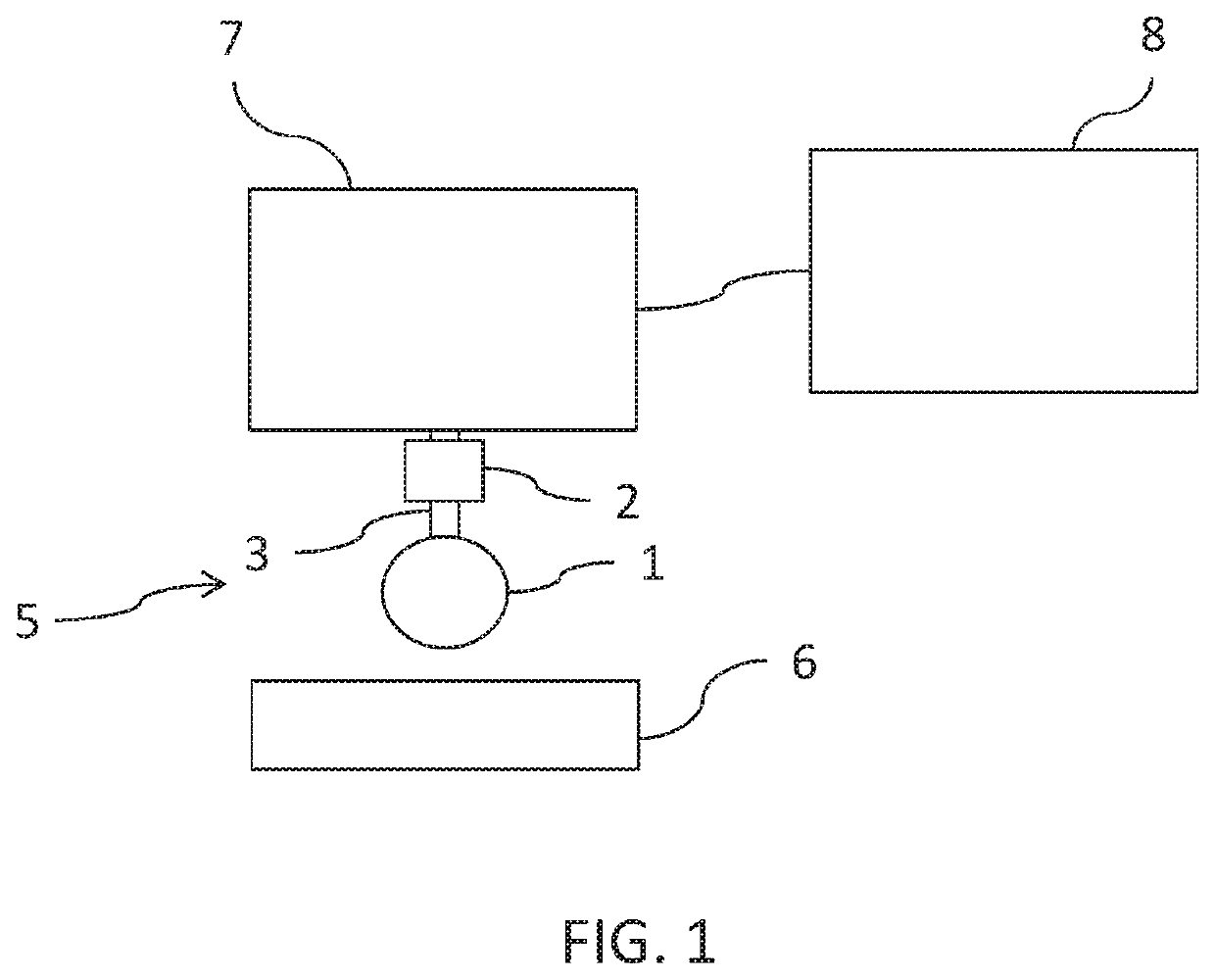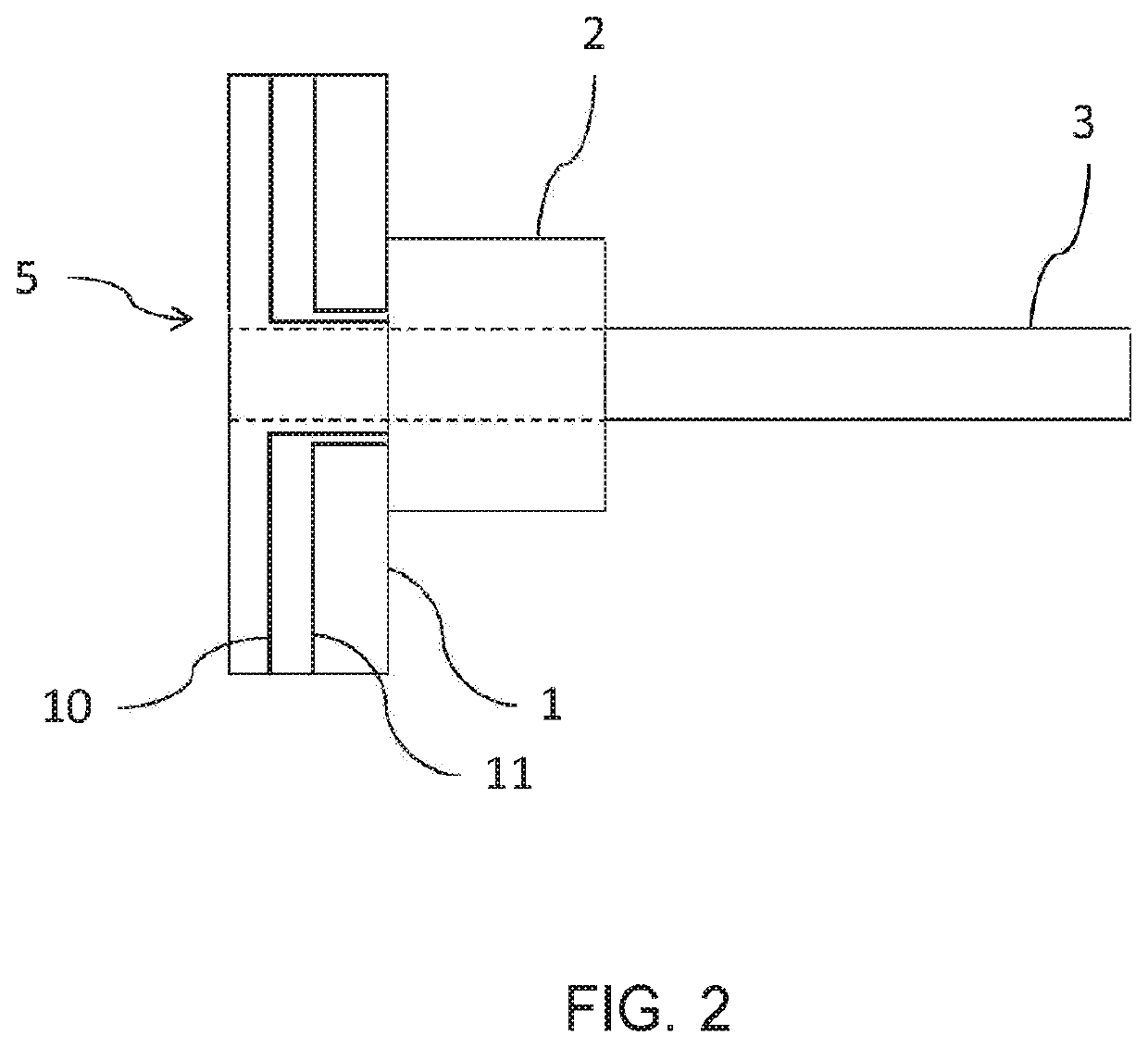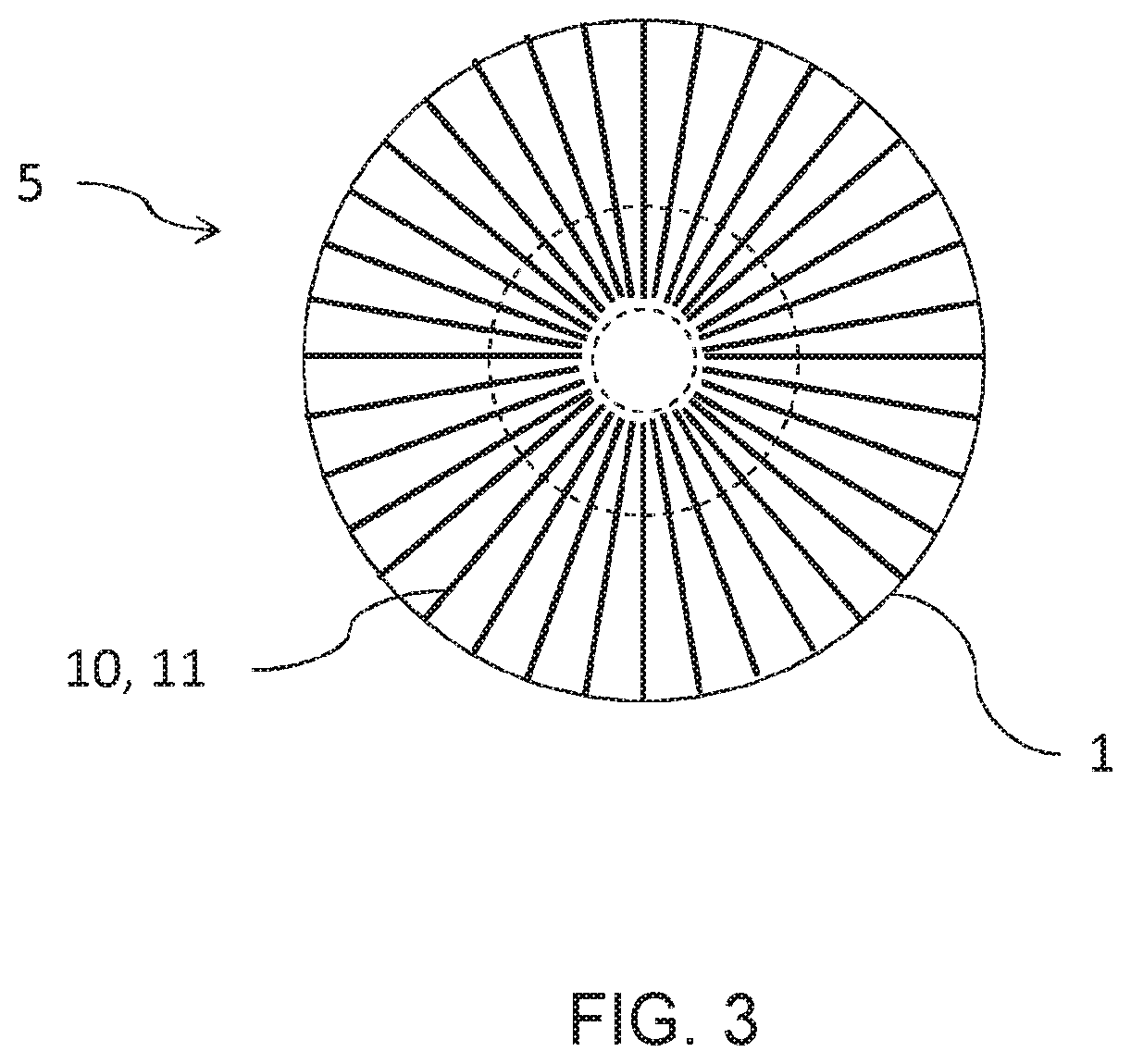Grinding robot and method for grinding electrically conductive workpieces
- Summary
- Abstract
- Description
- Claims
- Application Information
AI Technical Summary
Benefits of technology
Problems solved by technology
Method used
Image
Examples
first embodiment
[0018]FIG. 2 illustrates a grinding wheel 5 for use in an inventive grinding robot in a first embodiment, along the axis of rotation. During operation, the grinding wheel 5 rotates around tool receptacle 3. Grinding wheel 5 also includes a measuring and transmission unit 2. The measuring and transmission unit 2 is equipped with an independent power supply, which can be for example a battery or a super capacitor (not illustrated). At least two conductor strands 10 and 11 are embedded into the rotationally symmetrical head 1. The conductor strands 10 and 11 extend in each case from the outer surface of rotationally symmetrical head 1 which is in contact with workpiece 6 during operation, to the interior of head 1 where they are electrically connected with measuring and transmission unit 2. The conductor strands 10 and 11 are electrically insulated from one another, which is achieved either by a separation of the conductor strands 10, 11 from one another or through electrical insulatio...
second embodiment
[0023]FIG. 4 illustrates a sectional view along the rotational axis of a grinding wheel 5 for use in an inventive grinding robot. The same identification references are used as in FIGS. 1-3. Grinding wheel 5 illustrated in FIG. 4 has a rotationally symmetric head 1 which has a spherical shape. Since such a head 1 makes rather selective contact with the workpiece, conductor strand pairs 10, 11 must run much closer adjacent to one another onto the surface of head 1 and must progress closely together in the expected region of wear of head 1. Thus, conductor strand pairs 10, 11 are shown in each case in FIG. 4 only as a single line. It is clear that as a rule, this arrangement necessitates that conductor strands 10 are electrically insulated from conductor strands 11. One option for achieving this is in the use of coaxial cables which are insulated from one another, that is to say, one of conductor strands 10 or 11 surrounds the other one in a tubular manner, wherein a suitable insulati...
PUM
 Login to View More
Login to View More Abstract
Description
Claims
Application Information
 Login to View More
Login to View More - R&D
- Intellectual Property
- Life Sciences
- Materials
- Tech Scout
- Unparalleled Data Quality
- Higher Quality Content
- 60% Fewer Hallucinations
Browse by: Latest US Patents, China's latest patents, Technical Efficacy Thesaurus, Application Domain, Technology Topic, Popular Technical Reports.
© 2025 PatSnap. All rights reserved.Legal|Privacy policy|Modern Slavery Act Transparency Statement|Sitemap|About US| Contact US: help@patsnap.com



